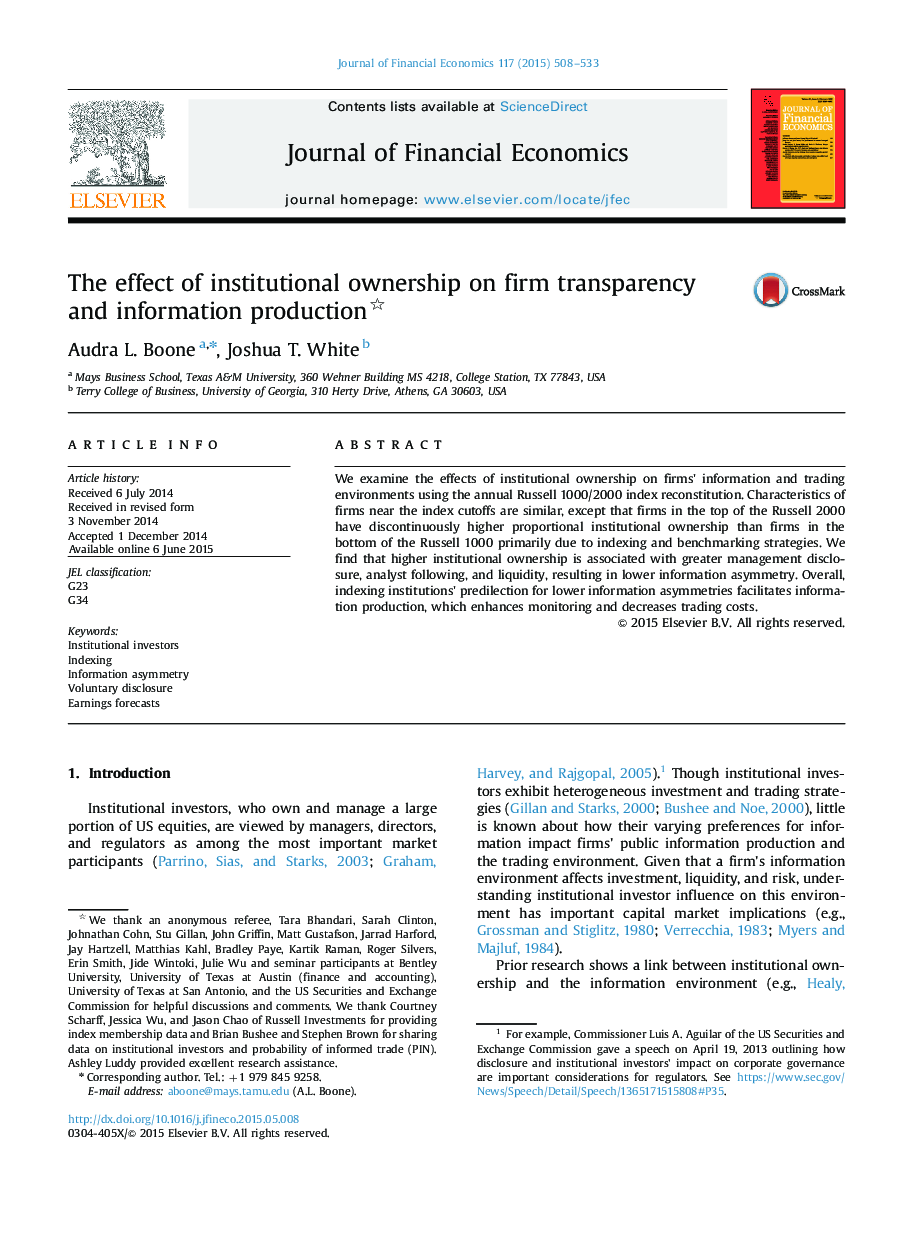| Article ID | Journal | Published Year | Pages | File Type |
|---|---|---|---|---|
| 959759 | Journal of Financial Economics | 2015 | 26 Pages |
We examine the effects of institutional ownership on firms׳ information and trading environments using the annual Russell 1000/2000 index reconstitution. Characteristics of firms near the index cutoffs are similar, except that firms in the top of the Russell 2000 have discontinuously higher proportional institutional ownership than firms in the bottom of the Russell 1000 primarily due to indexing and benchmarking strategies. We find that higher institutional ownership is associated with greater management disclosure, analyst following, and liquidity, resulting in lower information asymmetry. Overall, indexing institutions׳ predilection for lower information asymmetries facilitates information production, which enhances monitoring and decreases trading costs.
